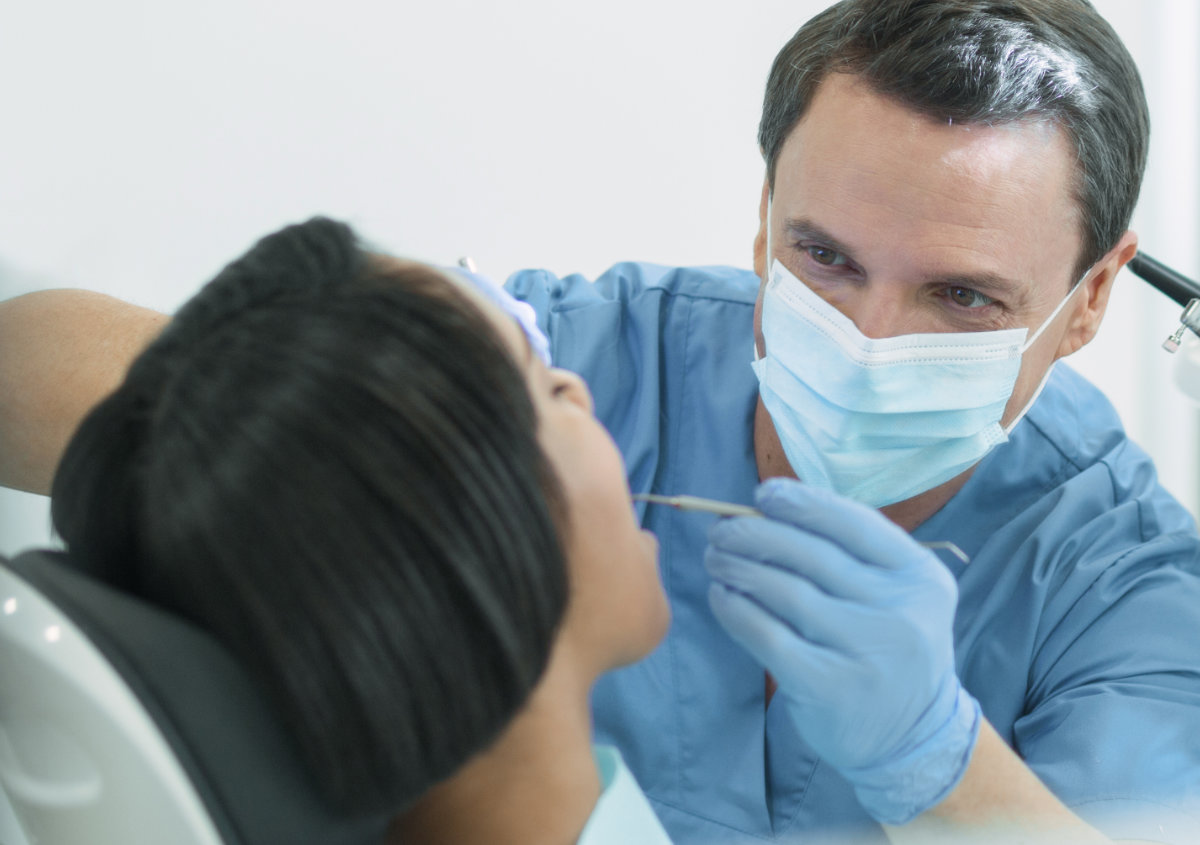
02
Jun
Restoring Health and Appearance Through Periodontal Plastic Surgery

The “wear and tear” nature of gingival (gum) tissue enables it to readily handle the chewing and biting actions of eating and still perform its most important function: protecting the roots of your teeth from decay and environmental exposure. But while they’re resilient, they’re not invincible: it’s quite possible for them to lose their attachment to a tooth and begin to recede, leaving the root surfaces exposed.
Gum recession can occur for a number of reasons: poor oral hygiene; over brushing and flossing; malocclusion (a poor bite); personal habits, like biting down on hard foreign objects; or poorly fitted dentures or other appliances. From a genetic point of view, people with thinner gingival tissues are more prone to gum recession than those with thicker tissues. Whatever the cause, the result is the same — the exposed tooth becomes more sensitive to environmental factors (such as heat, cold, abrasion or erosion). More importantly, it now has a higher susceptibility to decay and disease, leading to its possible demise.
But there may be a solution. Although the original tissue may be lost, periodontal plastic surgery can restore a protective layer of tissue to the tooth, and at the same time give you back the smile you once had.
From the Greek word “plastik” for sculpting or modeling clay, plastic surgery procedures restore both form and function to a bodily structure. While the term “plastic surgery” can apply to other procedures in medicine such as rhinoplasty or face lifts, the periodontal procedure particularly involves grafting similar tissue to an area of recession, and then “shaping” it into a natural, life-like form.
Request an Appointment
To graft means to remove tissue from a donor site and attach it to a recipient site. In the case of periodontal tissue, the recipient patient can also be the donor with the tissue coming from some other area of the same mouth (the graft can also come from another human or an animal). Using advanced techniques and a touch of artistry, the surgeon positions and sutures the graft in place.
The result: not only a new protective covering for your tooth, but a more pleasing appearance when you smile.
If you would like more information on periodontal plastic surgery, please contact us or schedule an appointment for a consultation. You can also learn more about this topic by reading the Dear Doctor magazine article “Periodontal Plastic Surgery.”
This website includes materials that are protected by copyright, or other proprietary rights. Transmission or reproduction of protected items beyond that allowed by fair use, as defined in the copyright laws, requires the written permission of the copyright owners.
Share this Article
What Our
Patients Say
We always want to assure that our patients receive great care and have good experience when they come to see us.


